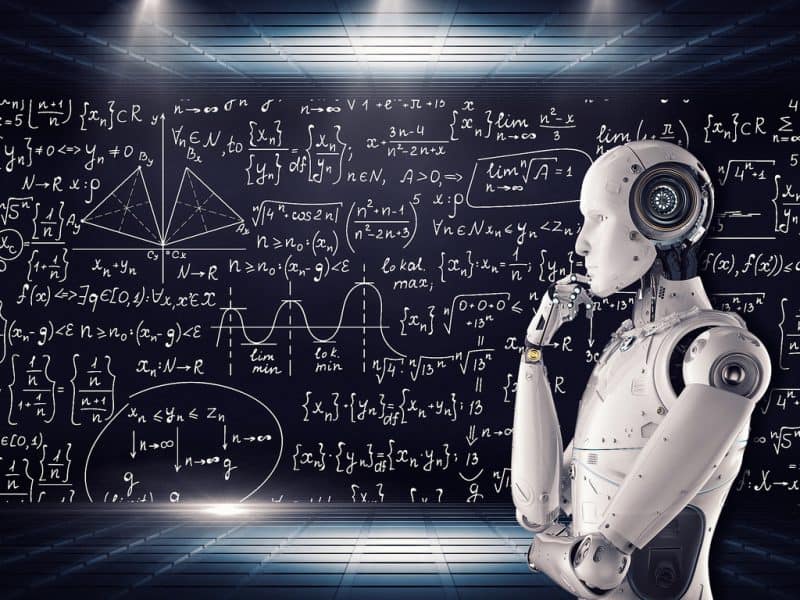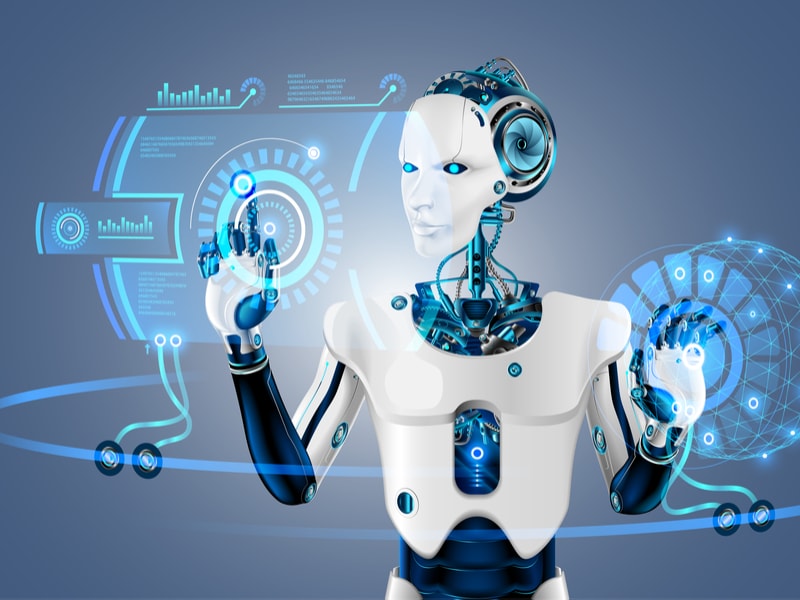
Artificial intelligence has erupted with force in the last decade and in a subtle and silent way is occupying increasing spaces in industry, services and administration: we have AI in the search engines that we use every day, in the voice recognition systems, in the image tagging systems of our networks, in the recommendation engines of our online stores …
Current technology can be classified as weak intelligence or ANI (artificial narrow Intelligence), which are systems capable of performing a specific task (recognizing speech, recognizing images, processing text…) even better than a human, but only that task.
The current goal is to achieve what is known as strong artificial intelligence or AGI (Artificial General Intelligence), technology that will be able to perform any cognitive task developed by the human being (multiple, adaptive, flexible, efficient, incremental).
And, finally, according to the defenders of singularity and exponential growth, the technological evolution will lead to the emergence of Superintendent systems or ASI (Artificial Superintelligence) systems that will have a higher intelligence than human in all possible fields: creativity, sociability and collective intelligence.
The progress of AI has gone hand in hand with the development of technologies for large amounts of data, Big Data, driven by the increase in digitalization both at business levels (industry 4.0) and at particular levels (social networks), all favored by the multiplication of smart phones worldwide.
These systems affect several facets of our current life and are apparently innocuous, but, little by little, systems are being incorporated that besides analyzing and informing, begin to decide. Aircraft approach systems are already automatically monitored. In the US, risk analysis systems for personal lending are based on AI engines based on personal information from social networks and other environments.
AI systems primarily use automatic learning techniques that require a significant amount of information to execute their algorithms. The power of AI is based on the information that is possessed and the learning that is done from it. Therefore, biased information, with inclinations towards a pre-established trend, can generate results and oriented predictions that harm certain segments of society in one way or another.
The owners of information and technology have in their hands a capacity for influence and control over a large part of society, a capacity that is growing as we spontaneously pour more and more information into the systems that apparently give us more freedom, but are reducing our domains of action.
Through the offer of apparently free services, technological companies, and specifically the leading companies known as GAFA (Google, Apple, Facebook and Amazon), continually collect information about their users, favouring the learning and efficiency of their algorithms.
These algorithms guides their tastes and even encourage certain behaviors:
- Purchasing and consulting systems that analyze your behavior and pass on information about your habits to numerous actors without you knowing it.
- Navigation systems that monitor your movements and share them with companies without your consent
- Social networks that filter news, relationships and advertising based on information gathered in other media or through personalized campaigns run by unknown people or companies.
- the video-surveillance systems that record your movements and can tag your images
This situation of global monopoly on the part of large technology companies, which through the multiplier power of IT extract knowledge, information and wealth from users in their environment of happy Arcadia.
On the other hand, more and more voices are being raised denouncing the negative effects of the phenomenon of increasing information, known as dataism. On the one hand, social networks, e-commerce sites, search engines and mobile devices collect an enormous amount of personal data; registering habits and sharing, contacts, etc.
On the other hand, the content of the algorithms, the hypotheses, the conceptual models and the process of execution of these is perceived as a black box without transparency to the end user and with a potential risk that is seen as harmful.
This situation raises major problems about individual freedom: problems about privacy and the use of personal information; doubts about data ownership and exploitation; difficulties in managing the so-called right to digital oblivion; biases and prejudices imbued in algorithms; addictive systems, and so on.
Therefore, the development of AI generates some shadows in the digital sky panorama that affects both business and economic development as well as individual freedom and the development of collective rights, raising big unknowns in the immediate future.

Robotics
Robotics is also experiencing an accelerated development thanks to the improvement of computer systems, new sensor technologies (IoT) and the advancement of intelligent systems that provide robots with analysis capacity, decision-making and greater scope for action.
The factories are being transformed with the appearance of numerous robots both in the production chain and in internal logistics, which allow multiplying efficiency, increasing quality and facilitating a more flexible and automated manufacturing. Likewise, transport systems are being reconverted to prepare for the arrival of autonomous systems, more efficient, with less consumption and adaptable to production needs.
Robotics, together with the digitalization of factories, with the impulse of artificial intelligence and the development of additive manufacturing, have opened the way for the appearance of the manufacturing paradigm of the decade: “industry 4.0”.
However, various shadows blacken the good omens: numerous studies warn of the disappearance of many jobs as a consequence of the appearance of robots: in manufacturing, in the transport of goods, in the logistics of deliveries. In order to combat it, it is proposed to reconvert millions of employees to the new technological paradigms, current and future, posing an uncertain labour future where reconversion, precariousness and permanent adaptation will be the only certainty.
In addition, the creation of robots with a human aspect, androids, also generates a lot of rejection, warning about dystopian scenarios where the very existence of humanity is endangered, since worlds of unknown emotional bonds are opened.
Finally, these numerous changes of automation and simplification of tasks raise many doubts regarding physical and intellectual dependence. Certain studies warn of the risk of physical weakening and intellectual weakening due to the continued use of technological gadgets.
Biomimprovement
The advances in biomedicine are generating fabulous expectations for the cure of congenital diseases, for the eradication of epidemics or for the control of endemic diseases such as cancer. Research in genetics, the strength of synthetic biology and the emergence of Big Data and Artificial Intelligence techniques to improve diagnostics pose a scenario of optimism in the control of human life.
Advantages to improve physical or mental capacities:
- Selection of predominant genetic traits.
- Treatments to enhance physical capacities
- Treatments to enhance memory, speed of calculation,
- Integration of technologies with the body to strengthen it, hybrid systems
- Extension of life
- Virtual copy of the mind to prolong life..
Although in the field of biotechnology it seems that there is still a long way to go before tackling biomimprovement, these ambitious proposals generate many doubts and fears given that we are talking about the first fundamental value.
These practices raise many ethical, moral and political issues. Many doubts arise:
- Who controls these developments, to what objectives is the research directed and for what reasons, what interests are satisfied as a matter of priority, what security guarantees are offered, what criteria are used in the choice?
- Can we play at being God, can the limits of life be questioned, who puts control over research, where are the limits of human nature if one does not believe in an end?
In short, the technologies that are being developed and in full expansion entail the emergence of a series of potential risks, some more feasible than others, which must be highlighted.
Massive digitisation is generating consequences at levels of privacy, individual freedom and social responsibility. Intelligent systems and robots raise ethical questions about personal and collective autonomy. The aspirations of biomimprovement alert us to the danger of eugenics and the race for the lengthening of life puts us before the tessitura of where the limit of life is.
